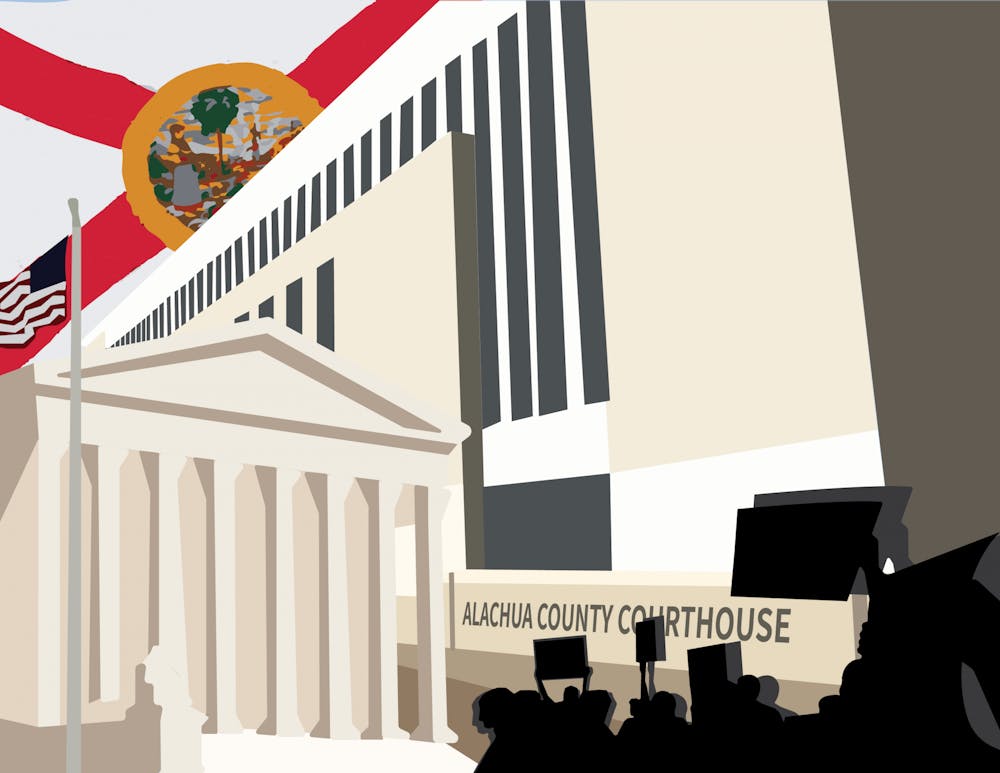The Florida Supreme Court heard oral arguments for a case that will determine the fate of abortion rights in the state Friday morning.
The lawsuit — Planned Parenthood of Southwest and Central Florida v. State of Florida — challenges Florida’s House Bill 5, a 15-week abortion ban approved by Gov. Ron DeSantis in 2022. This landmark case for Florida’s abortion protections follows the U.S. Supreme Court's striking of Roe v. Wade last year, ending the federal constitutional right to an abortion.
The group of abortion providers who brought forth the lawsuit, which includes Planned Parenthood, argues the law violates the state’s constitutional right to privacy, a clause voters approved in 1980. In 1989, the Florida Supreme Court said the clause guarantees a right to abortion.
A state trial court agreed with the plaintiff’s argument that the 15-week ban was unconstitutional and issued a temporary injunction to block enforcement of the law July 5, 2022. The state appealed the decision to the Florida Supreme Court soon after.
There is no date set for a court decision. If the court rules to uphold the 15-week ban, it will trigger a six-week ban signed by Gov. Ron DeSantis in April to take effect within the following 30 days of the decision. While the six-week ban includes some exceptions, like saving the mother’s life, it eliminates exceptions for rape or incest after the 15-week mark.
Whitney White, the ACLU attorney representing the plaintiffs, argued that the 15-week ban ignores the wishes of Floridians.
“The Florida Supreme Court should respect the rule of law and protect the right of people to make personal medical decisions during pregnancy for themselves,” White said.
White argued that the legislation violates Floridian’s constitutional right to privacy by intruding on their personal decisions. She emphasized the law puts patients at risk of being forced to carry a pregnancy to term and coerces physicians to act against their moral and personal values.
Henry Whitaker, Florida’s Solicitor General, asserted the privacy clause was focused on “informational privacy,” rather than “decisional autonomy.” The first protects people from having their information collected and disseminated by the government, while the latter relates to freedom of choice and protects the right to abortion.
Whitaker added that extending the right of privacy to decisional autonomy could open the door to people using that right as a defense against worse actions, such as infanticide —the act of killing a child younger than one year old— and spousal abuse.
“The consequences would be striking,” Whitaker said. “Those all involve personal decisions I suppose the government could be said to be interfering with in some sense when the Legislature takes action to remedy choices that harm others.”
During the hearing, the justices prompted both sides with questions about what people’s motivations to vote for the privacy clause in 1980 were.
Justice John Couriel said there is no written evidence to show Floridians were relating the privacy clause to abortion rights. Justice Carlos G. Muñiz seemingly agreed, adding that people voted for the clause during a time when abortion was not an issue on the ballot because it was federally protected by Roe v. Wade.
Muñiz also referred to the Roe decision as an “abomination” and asked White about the protections for unborn children if the court ruled HB5 unconstitutional.
“You’re asking us to essentially take a whole class of human beings and put them outside of the protection of the law,” Muñiz said.
However, Justice Jamie Grosshans shared her concern that reversing the 2022 state trial court’s decision would involve rejecting over 30 years of precedent on abortion and non-abortion cases established by the state’s privacy clause.
Lauren Book (D-Davie), the Florida Senate Democratic Leader, attended the hearing on Friday. She emphasized that this case is crucial to the future of the state’s abortion care in a statement to The Alligator.
“If this Court agrees to reverse precedent, the safety of women, girls, and sexual assault survivors throughout Florida and the Southeast will be imperiled,” Book said in a written statement.
Contact Valentina at vsandoval@alligator.org. Follow her on Twitter @valesrc.
Valentina Sandoval is a fourth-year journalism major and the Summer 2024 Engagement Managing Editor. Whenever she's not writing, she's expanding her Animal Crossing island, making Spotify playlists or convincing someone to follow her dog on Instagram.






